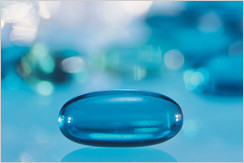The French pharmaceutical market is forecast to grow by a miniscule amount in the coming years due to the growing influence of generics in the country.
Generics gaining ground in French pharmaceutical market
Home/Reports
|
Posted 20/02/2015
 0
Post your comment
0
Post your comment

According to a report by research and consulting firm Global Data, the French pharmaceutical market will observe a Compound Annual Growth Rate (CAGR) of 0.7% from US$46.2 billion in 2014 to US$48.2 billion by 2020. Growth is being restricted by the French Government’s increasing focus on generics.
France was a relatively late entrant to the generics market compared to Germany and the UK. In 2008, generics accounted for 21.7% of the pharmaceutical market in terms of volume, which increased to 30.2% in 2013.
The French are in general mistrusting of generics with many choosing to stay with brand-name drugs. However, in 2012, in order to combat rising healthcare costs, the French Government introduced measures to increase generic drug use in the country. The government introduced rules which mean that patients can no longer refuse generics offered by pharmacists unless they are willing to pay for the alternative. The country has also imposed cuts on generics and brand-name medicines [1].
While patented drugs dominate France’s pharmaceutical market, the volume of prescribing attributed to generics in the country is expected to shift closer to levels seen in the rest of Europe, restricting market growth. Although France’s elderly, who are expected to reach almost 20% of the population by 2020, are expected to boost growth.
France has also been looking towards biosimilars as a means of reducing expenditures. Biologicals represent more than 25% of spending on drugs in France, accounting for more than Euros 7 billion of annual expenditure. In the next five years several major biologicals in oncology and the treatment of autoimmune diseases, accounting for more than Euros 1 billion in spending, will lose their patent protection, opening the door to biosimilars [2].
France is the first European country to introduce legislation allowing substitution of biosimilars as part of a new law concerning the social security budget (Article 47 of the Law of 23 December 2013), which came into effect on 1 January 2014. The substitution of a biosimilar for the prescribed (reference) biological is only allowed under certain conditions, including only when initiating a course of treatment and that the prescribing physician has not marked the prescription as ‘non-substitutable’ [3].
Another report by the IGES Institute found that by 2020, eight countries in the European Union (which included France) could save a cumulative total of between Euros 11.8 billion and Euros 33.4 billion through the use of biosimilars [4].
Related articles
Growth in Netherlands pharma market held back by generics policies
Factors supporting a sustainable European biosimilars market
References
1. GaBI Online - Generics and Biosimilars Initiative. French Government pushing generics [www.gabionline.net]. Mol, Belgium: Pro Pharma Communications International; [cited 2015 Feb 20]. Available from: www.gabionline.net/Generics/General/French-Government-pushing-generics
2. GaBI Online - Generics and Biosimilars Initiative. French generics association promotes biosimilars [www.gabionline.net]. Mol, Belgium: Pro Pharma Communications International; [cited 2015 Feb 20]. Available from: www.gabionline.net/Conferences/French-generics-association-promotes-biosimilars
3. GaBI Online - Generics and Biosimilars Initiative. France to allow biosimilars substitution [www.gabionline.net]. Mol, Belgium: Pro Pharma Communications International; [cited 2015 Feb 20]. Available from: www.gabionline.net/Policies-Legislation/France-to-allow-biosimilars-substitution
4. Haustein R, de Millas C, Höer A, Häussler B. Saving money in the European healthcare systems with biosimilars. Generics and Biosimilars Initiative Journal (GaBI Journal). 2012;1(3-4):120-6. doi:10.5639/gabij.2012.0103-4.036
Permission granted to reproduce for personal and non-commercial use only. All other reproduction, copy or reprinting of all or part of any ‘Content’ found on this website is strictly prohibited without the prior consent of the publisher. Contact the publisher to obtain permission before redistributing.
Copyright – Unless otherwise stated all contents of this website are © 2015 Pro Pharma Communications International. All Rights Reserved.
Source: GlobalData
Guidelines
US guidance to remove biosimilar comparative efficacy studies
New guidance for biologicals in Pakistan and Hong Kong’s independent drug regulatory authority
Policies & Legislation
EU accepts results from FDA GMP inspections for sites outside the US
WHO to remove animal tests and establish 17 reference standards for biologicals
EU steps closer to the ‘tailored approach’ for biosimilars development

Home/Reports Posted 21/11/2025
Advancing biologicals regulation in Argentina: from registration to global harmonization

Home/Reports Posted 10/10/2025
The best selling biotechnology drugs of 2008: the next biosimilars targets








Post your comment